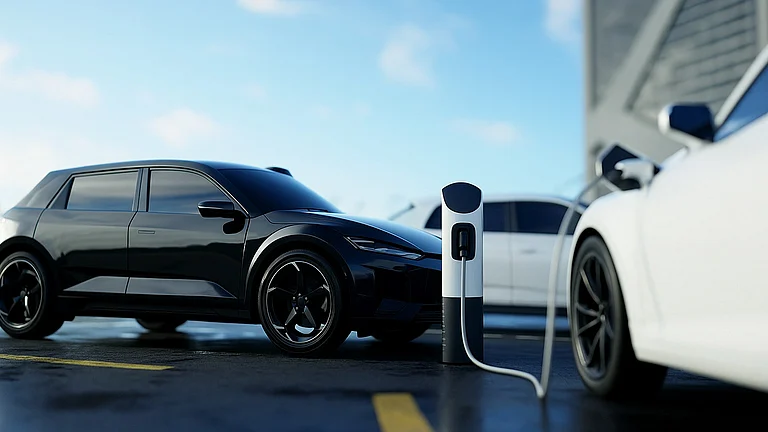
Navarro accuses India of ‘Maharaja tariffs’, criticises Russian oil imports.
India defends sovereignty, says discounted crude shields economy, consumers.
China lifts rare earth curbs, envoy calls US tariffs ‘bullying’.
India deepens Russia, China ties amid Trump’s unilateral trade pressures.
White House Trade Adviser Peter Navarro has yet again taken a dig at India, saying that the country imposes ‘Maharaja’ tariffs and accused it of running a ‘profiteering scheme’ by using discounted Russian crude oil. This comes just on the day External Affairs Minister S. Jaishankar responded to America’s criticism of India for its energy ties with Russia and said the U.S. itself had asked New Delhi to help stabilise global energy markets by buying Russian oil.
On the other side, India seems to be unpertrubed by Trump’s repeated threats issued against the country’s oil imports from Russia. New Delhi continues to purchase oil from Russia while it ramps up engagement with its economically stronger neighbour China. This has visibly irked the Trump administration, leading his lituenants to issue a barrage of disparaging comments against India’s sovereign interests like Navarro calling India’s association with China as ’cozying up with the Chinese President Xi Jinping’.
However, amidst these disturbing geopolitical developments, Navarro has lambasted India for doing exactly the same thing the US is doing, which is prioritising its own sovereign priorities and acceleration of domestic business interest. However, former US government officials, including Nikki Haley, former US ambassador to United Nations have urged caution saying that meddling relations with India could be a ‘strategic disaster’.
Why Navarro’s Stance is Based on Biased Arguments
India like any other country, reserves absolute rights to exercise its sovereignty to protect its domestic industries and sectors. The steep tariffs imposed by Trump on Indian goods is expected to hit various Indian businesses harshly, especially in sectors like steel, aluminum and agriculture, among others. Referring to India’s measures aimed at protecting its economy as ‘Maharaja in tariffs’ in the face of skewed rules of engagement, especially while heaping tariffs on it reeks of retaliation and exploitative intent even as negotiations are underway.
Navarro’s statements become even more irrational especially because of the sheer selectivity of criticism by the US administration, firstly in the matter of importing Russian oil and secondly in relation to protectionist measures. With an aim to address trade imbalance concerns, the US administration launched the series of tariff barriers; and now when India is turning to safeguard its interests by maintaining its partnership with other strategic partners, America is annoyed.
Additionally, the US is only criticising India for its oil imports but it has failed to hold China accountable for the same. China remains the largest buyer of Russian oil, at about 2 million barrels per day, followed by India and Turkiye. Not only that, the US continues to source fertilisers and nuclear raw material from Russia, its ally Europe remains the largest receiver of Russian LNG exports. However, US Treasury Secretary Rubio argues that China just refines the oil taken from Russia.
Amid the need for a constructive and beneficial trade agreement built on the foundation of trust and mutual respect, such jabs further alienate the two countries from any meaningful partnership.
Why India’s Current Stand on Russia & China is Justified
After facing such unprecedented tariffs from a major trade partner like US, India has stood firm on maintaining its energy ties with Russia while ramping up its strategic engagement with China. India is currently continuing to purchase oil from Russia as discounted Russian crude has helped India keep its import bill in check at a time of global uncertainty and volatility, which in turn has benefited Indian consumers. In that backdrop, not only have Indian leaders resisted efforts to undermine India’s sovereignty and national interest, but also ensured that the domestic market is cushioned from the impact of global headwinds.
Additionally, India, despite having disagreements with China over a number of issues, has worked to improve its relationship with the country. With China riding on the same boat as India in terms of relation with the US, both the countries are looking to deepen their cooperation on various issues, even as both the governments work to untangle the knots of previous disagreements.
Notably, Chinese Foreign Minister Wang Yi’s latest visit to India brought for a significant relief for Indian industry as it led to China lifting curbs on exports of fertilizers and rare earth magnets.
China’s curbs on rare earth elements have had a huge impact on India. The auto sector was hit badly with EV production of major automakers dropping massively. However, as of recent developments, China has lifted those curbs on export of rare earth magnets to India. This comes amid the intensifying US tariffs and restricting Chinese exports. In the midst of all this, China wants to strengthen ties with markets like India.
On Thursday, Chinese Ambassador to India Xu Feihong called the US 'a bully' and came out strongly against Washington’s decision to impose steep tariffs on Indian goods. The ambassador also emphasised that India and China should enhance strategic mutual trust, manage differences through dialogue and avoid mutual suspicion. “China and India are partners, not rivals,” he stated.































